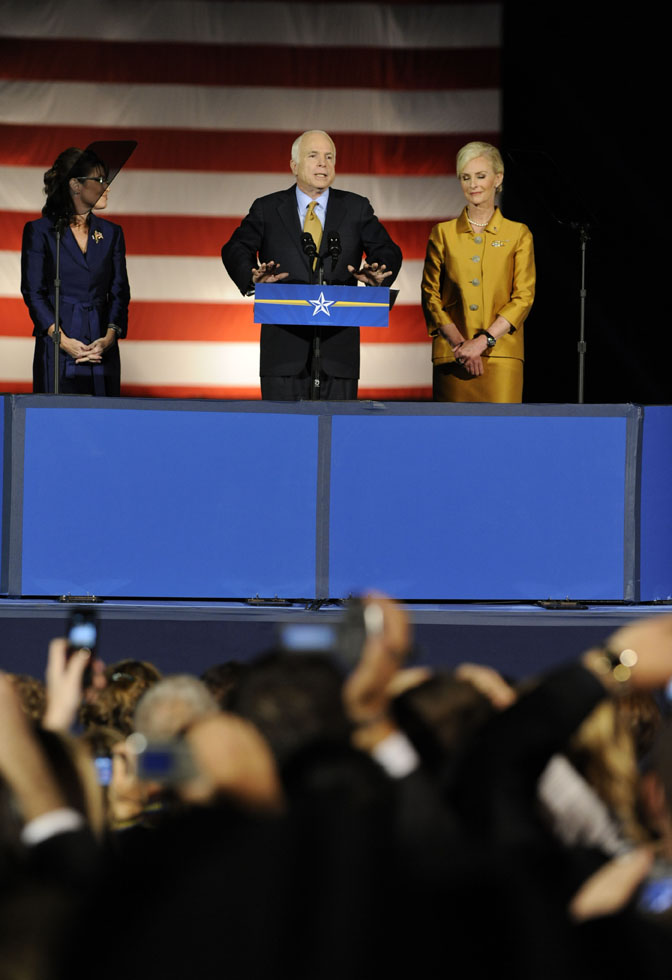Spending the Wealth: Redistribution and Barack Obama
June 5, 2011
Published: November 13, 2008
I voted for John McCain. In case you are wondering how upset I am, I’ll live. I was disappointed, but time flies. I sure am worried, though. Don’t get me wrong; I don’t want President-Elect Barack Obama to fail. There is, of course, a certain satisfaction from being able to say “I told you so.” But that satisfaction won’t really benefit me in the long run, and I would much rather Obama succeed than pull us further up the creek. But as of yet, Obama has done nothing to earn my trust or to prove that he will be able to benefit this country at all. He is a young, charismatic, positive guy with progressive ideas who just happens to be our first black President-Elect, and I applaud his achievement. He hasn’t really been on the scene for that long, though, and his politics frankly make me nervous.

Obama has evidently espoused a support for wealth redistribution for some time. The McCain campaign clearly jumped all over this—but too little too late. On Oct. 11, Obama was taking questions from residents of an Ohio town. One such resident, Samuel Wurzelbacher, complained that he would be taxed more by Obama’s tax plan. Whether this is true or not is irrelevant. What struck me was the senator’s response: “It’s not that I want to punish your success. I just want to make sure that everybody who is behind you—that they’ve got the chance for success too…I think when you spread the wealth around, it’s good for everybody.” In a 2001 Chicago Public Radio interview when Obama was a State Senator from Illinois’s 13th district, he said that a tragedy of the Civil Rights movement was that the Supreme Court never “ventured into the issues of redistribution of wealth.” He suggests that ensuring economic and social justice through redistributive change does not stray radically from the intents of our founding fathers.
Throughout his campaign, Obama attempted to woo the middle class by promising to cut taxes for them and raise taxes for the rich. Obama has promised $80 billion in tax relief. He has also promised to cut federal spending as well. He has some costly plans for his presidency, however, including a $150 billion boost to the green energy sector and a $50-$65 billion universal health care plan. Obama wants to add 65,000 soldiers and 27,000 Marines to active duty military. He also plans to double U.S. spending on international cooperation and development programs.
How does the President-Elect plan to finance this? One way to finance federal spending is to end the “right wing” trickle-down tax policies enacted by President Bush. The idea behind these policies is that if we cut taxes for the highest bracket of earners, these people will invest the money they save, and that money will trickle down to the middle and lower classes. According to Obama, the idea that this money will trickle down is ridiculous, and so these tax cuts are just loopholes for the rich—relief for those who need it the least. He apparently forgets that John F. Kennedy, a man he often, and fondly, invokes, employed a similar policy, defending it with his famous quote, “A rising tide lifts all boats.”
Obama promises that he will cut taxes for 95 percent of working families, and that no one will see higher taxes than they saw under former President Clinton’s administration. According to the Congressional Budget Office, though, in December 2007 the top one percent of Americans earned 18.1 percent of income and paid 38.8 percent of individual federal income taxes. Under Clinton, the top rate federal income tax was 39.6 percent. Is 1 percent enough to pay for Obama’s (nearly) universal health care plan, homeland security fund increases, green energy sector and $80 billion in tax cuts? I hope he can make it work.
Americans understand that with each new president, the U.S. will shift slightly left or right on the political spectrum. But until he was elected president, Obama was considered the most liberal member of the U.S. Senate. His politics and record certainly reflect that reputation. John McCain called Obama’s politics socialist. Though not a fan of socialism, I don’t argue that it doesn’t work. But whether or not you agree with it, socialism is pretty far left on the spectrum. Is it fair for 100 percent of Americans to have to stand behind such far-left policies when only half of Americans voted for those policies? John McCain may be an old Republican, but he can see the center from where he’s standing and has had a long history of reaching across the aisle to the left. So far, President-Elect Obama has failed to prove to me that he can do the same.
As I said, I hope Obama leads this country in a positive direction. I deserve to be able to trust my president, however. I might be able to do that better if he strove to be a little more moderate, and a little less radical.











